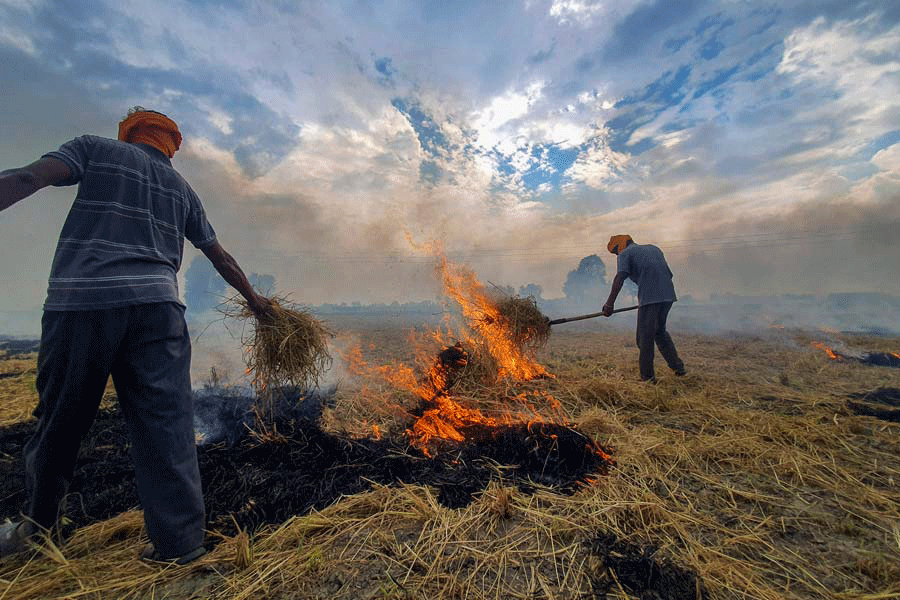Crop stubble fires have played a major role in the current air pollution crisis over the National Capital Region, the Centre said on Thursday, flagging 13-fold more fires in AAP-led Punjab than in BJP coalition-led Haryana since burning started in September.
The Centre also said Punjab should emulate Haryana which has introduced a scheme to procure and transport straw from farmers and another scheme to encourage crop diversification away from paddy, both seeking to curb stubble fires.
Air quality over Delhi and parts of the NCR remained “severe” on Thursday with concentrations of tiny particulate matter smaller than 2.5 microns (PM2.5) exceeding the permissible limit of 60 micrograms per cubic metre through the day and peak concentrations rising over four times higher. The toxic air has caused a surge in respiratory illness in children and vulnerable people in recent days, doctors in the NCR have said.
Air quality data and inputs provided by state governments indicate that the current crisis situation “is majorly on account of stubble burning”, central government officials said, outlining discussions at a meeting chaired by the cabinet secretary on Wednesday. About 38 per cent of the air pollution level on November 8 was attributed to soot from stubble fires, the officials said.
Authorities have documented 22,644 stubble burning fires between September 15 and November 7 out of which, the officials said, 20,978 were from Punjab and 1,605 from Haryana. The cabinet secretary has directed the Punjab administration to take effective action to stop further stubble burning.
The Union agriculture ministry has released Rs 1,531 crore to Punjab and Rs 1,006 crore to Haryana under its crop residue management scheme to prevent stubble burning. Punjab has received 120,000 machines and Haryana 76,000 machines. “The optimal utilisation of these machines could have prevented stubble burning to a large extent,” an official said.
The Haryana government has implemented incentive schemes to procure and transport straw from farmers and encourage farmers to shift from paddy to other crops that won’t require stubble burning.











